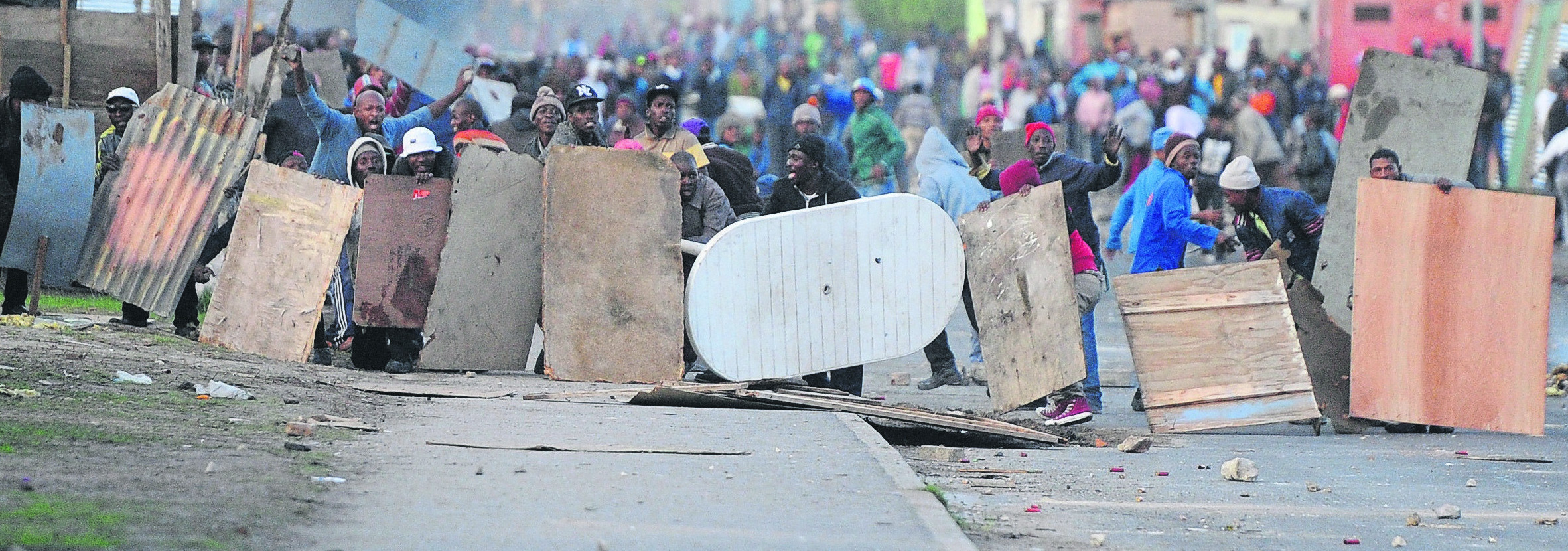
A sense that there is a crisis at the highest levels of government has taken hold in South Africa. The Directorate for Priority Crime Investigations, known as the Hawks, has instructed Pravin Gordhan, Minister of Finance, to make a warning statement on allegations of illegal spying and corruption against him relating to his time as tax commissioner. Gordhan’s refusal to comply, plus his stand-off with senior leaders of some state owned enterprises, have led even Deputy President Cyril Ramaphosa to speak of a state at war with itself as he declared his support for Gordhan.
The finance minister is enjoying an outpouring of support, especially from the business sector and academics and journalists aligned to it. Their positions are all presented as ultimately a concern for the poor, who they say will suffer even more should Gordhan be defeated by his enemies. Even some in civil society have now taken this position, although they disagree with the economic policies Gordhan and his fellow neoliberal capitalists stand for.
Supporting Pravin Gordhan in the belief that the poor are better off with him rather than his ANC rivals in charge of the finance ministry is based on a mistaken theory. Perhaps the cruellest tyranny of politics is that no amount of sincerity, passion and effort can deliver desired results if the political framework does not support those results.
Maybe Gordhan is a better person than whoever might replace him. And let’s say a neoliberal capitalist system based on the rule of law, which Gordhan is debatably seen to represent, is better than a neoliberal capitalist system without the rule of law, which the so-called patronage politicians in the ANC fighting against Gordhan are seen to represent. But the amount of resources going to the poor is not determined by the ethical character of the rulers, nor by the presence or absence of the rule of law. All three of these factors are the result of the relative strength of the resistance politics of the poor. Supporting Gordhan against Zuma subordinates the resistance politics of the poor to the factional battles of the ANC and thereby weakens it.
This resistance politics of the poor is ultimately based on two broad tactics known as direct action. The first is where poor people simply take resources denied to them, for example through occupying land for residential or agricultural purposes or through poaching. The second tactic is to disrupt the wealth and comforts of the elites until they concede needed resources to the poor, for example through strikes, road blockages and office occupations. Both of these are high risk options usually forbidden by law and almost always repressed by force, and therefore there are a number of other tactics such as marches, demonstrations, negotiations and media interventions, which are often in effect threats to employ direct action and, importantly, processes of building up the necessary support for it.
How does supporting Gordhan weaken resistance politics? Because this support is framed as supporting the rule of law and the power of the ANC. The rule of law is an idea through which the ruling class legitimises their power. It does not exist in reality, although it influences reality, sometimes in ways that benefit the poor. The ruling class does not seriously operate within the law, least of all the faction that Gordhan is part of, even as they use the law to present their power as just and fair. It is precisely the power of the ANC legitimised by the rule of law that has enforced neo-liberal capitalism and led to explosive growth of poverty and inequality.
The struggle for more resources for the poor is essentially a struggle to build the politics of resistance against elite power. Aligning with one elite faction against another on the basis of a framework supportive of elite power as a whole just consolidates the position of the ruling class. Those concerned that Gordhan’s defeat will mean less resources and freedoms for the poor should step up direct actions and deepen the exposure of the power of the ANC and the so-called rule of law as sources of domination and exploitation of the poor.

(Photo Credit 1: Roar Magazine) (Photo Credit 2: Right 2 Know Campaign)